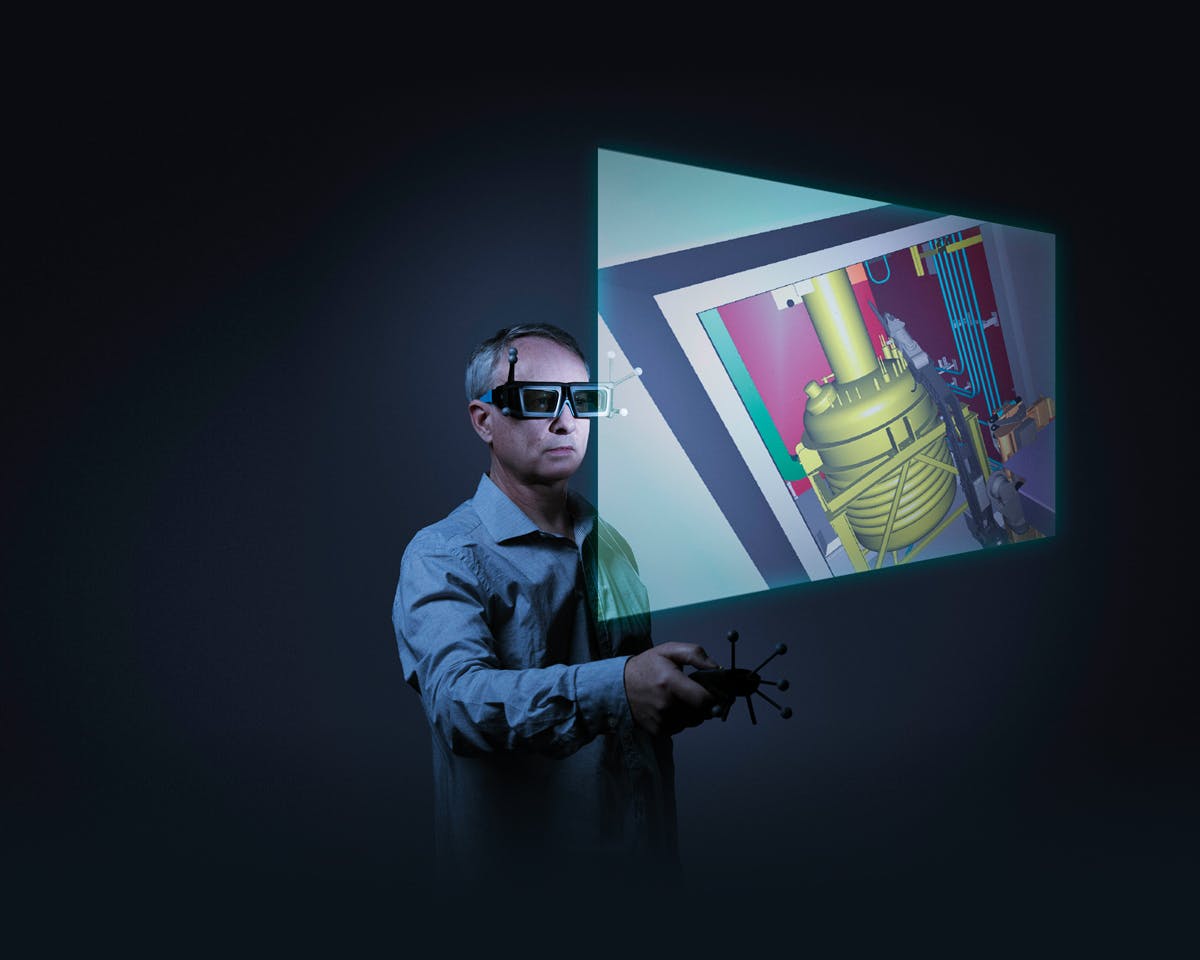What impact has digital transformation had on the La Hague facility?
At Orano la Hague, digital technology has a number of applications: ensuring operational safety, improving production plant performance and increasing our skills and attractiveness. It involves building a different way of working and extending the lifespan of equipment involving less exposure to radiation and fewer complicated tasks. At the same time, we must ensure that no compromise is made to the safety of nuclear sites during this transition to the “4.0 era”.
What are the real-life applications?
Using the touch panels installed in the control room, shift supervisors can get a real-time view based on the latest data. As a result, team briefings during shift changes are made easier in the 24/7 units.
The use of virtual reality and 3D immersion saves time for training operators and prior approval of any intervention scenarios. This process allowed us to save two months, for example, in the replacement of a dissolver wheel, a four-ton, five-meter diameter component in the shearing unit. Digital data analysis helps optimize remote maintenance operations and predictive maintenance.
How does upskilling support this transformation?
Digital technology has become an integral part of our Trade School, which trains 400 to 500 people each year. 3D simulated environments enable our employees to understand the operation of equipment located in inaccessible areas. Work environments such as testing rooms and training platforms are recreated at actual scale and combined with new tools such as computer assisted telemanipulator arms, which are easier to use than mechanical arms. A unit located in an inaccessible area is replicated almost identically in a virtual reality room. This process makes training possible and allows trainees to “enter” these rooms virtually to fully understand their complexity.



